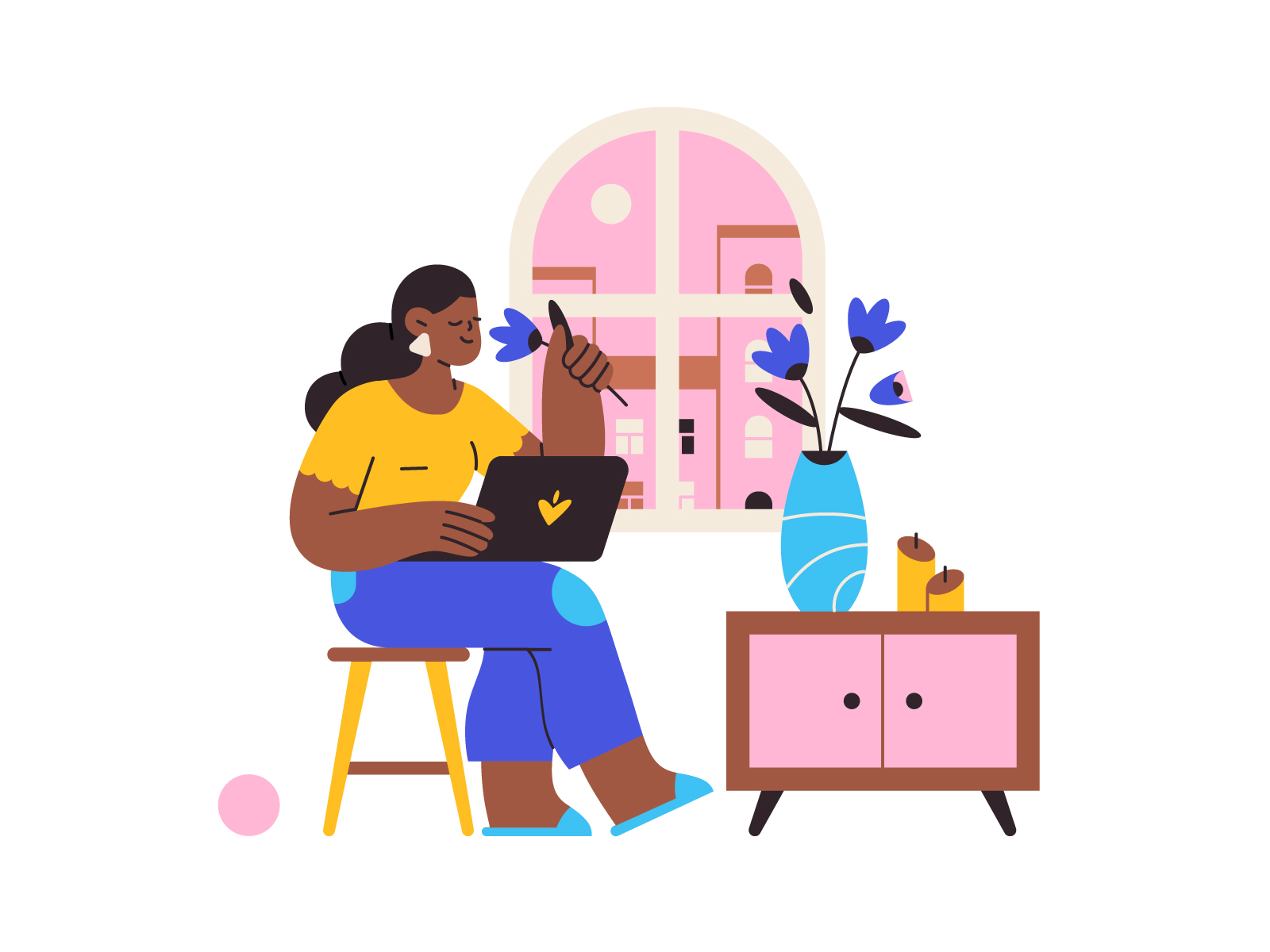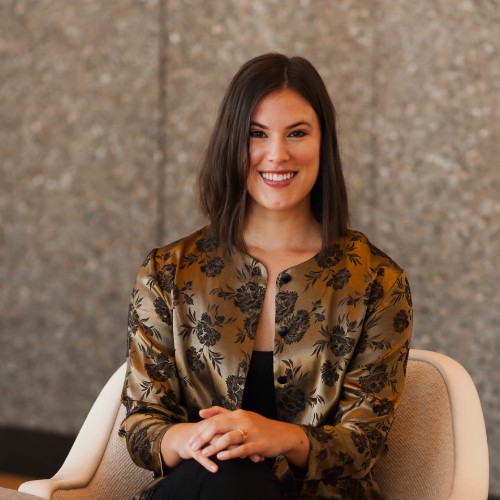
On Creativity, Wellness and Finding Purpose During a Pandemic – With Dr. Eve Blouin-Hudon
Dr. Eve Blouin-Hudon is a positive psychologist, an expert on creativity and imagination, as well as a long-time coach at Impact Hub Ottawa. She works as an Organization Health Lead at Statistics Canada, co-founded Bevy Creative, and has taught courses at Carleton University.
Her interest in people and passion for the arts are boundless, while her insight on daydreaming, creativity, and wellbeing bring value to all those who listen.
In this second edition of Community Stories, I sat down with Eve to discuss effective habits on self-awareness, the importance of play, and finding meaning in the current times.

Eve started her journey into psychology at a young age, being fascinated with human behaviors and why we make the choices we do. First falling in love with the humanistic theories of psychology in her undergraduate studies, Eve’s interests evolved into a further understanding of how humans think.
For her Master’s, she examined motivation and procrastination, first forming her ties to the imagination and the realities we can make in our minds. “I really wanted to know how connecting to our future self through the ability to create future images could help people who are procrastinating in being more empathetic towards that self.” Finally, for her Ph.D., Eve further explored this idea of mental space, researching daydreaming, creativity, and wellbeing.
Our conversation has been edited for length and clarity
On Self-Awareness
Tristan Oliff (TO): When you discuss creativity and imagination in practice, you often reference habits that many of us don’t practice effectively. Do you have any advice on how people could improve their relationship with the theories and techniques that you have studied?
Dr. Eve Blouin-Hudon (EBH) When you come to apply these theories in the real world, they don’t always hold up. Let’s say you analyze people through a theoretical lens, what would you say people are lacking? I would say it’s awareness of self.
We are so focused on everything in our external world: we’re focused on other people, our phones, computers, what we’re wearing, what we and other people are saying, even reading, as well as other forms of consumption. These are all great things but they take time away from ourselves.
A great way to start with self-awareness is to spend time thinking with a prompt, such as, “what does ‘X’ mean to me?” “Or what do I feel right now?” And then writing your thoughts on paper. I do a lot of free writing with people where you get a prompt or a little question, and then you set a timer for five minutes. The whole idea of the exercise is to understand your stream of consciousness and become more aware of all the things that are going on in your head, because we know how easy it is to jump from one thought to another really fast.
Finding Time for Play
TO: You talk a lot about the importance of finding quality time to be with oneself, yet also note that we find it more and more difficult to disconnect from the external world. So how would you promote “time with self” as a good investment for people reading this story?
EBH: Honestly, it’s not always easy to be self-aware, because there’s some stuff that can come up when we do this kind of work that’s not always pleasant. Maybe, as you just sit there, your mind gravitates towards a specific time of conflict or pain that you experienced. If that’s you, then it’s really important that you have a trusted person you can talk with.
That’s where I think being playful, and the whole concept of play really comes in to help us not take ourselves too seriously. If we see something in ourselves that is not perfect or that we’re not happy with, it’s important to make some special time and place for us to be us.
If you’re doing free writing, maybe put on some music that you enjoy or light a candle that smells really good. Set up space where you can paint or draw, watch a cartoon that you always loved as a child or play with your pets, do something that makes you feel connected, that makes you feel grounded.
I would just say discomfort is not there to slow you down, that discomfort is part of the process, so take it lightly, be playful about it and find support in others as it will help you stay on track.
Being present in the moment post-pandemic
TO: The pandemic has left many feeling stuck in a sense of purgatory. With the prospect of a return to relative normality approaching, what are some positive changes in mindset that you have experienced during the past 12 months that readers could bring into their lives?
EBH: That’s a really hard question. Because it’s one I’ve been grappling with myself. I remember when [the pandemic] first started, I thought this was going to be a great time for me to slow down… do some self-reflection. “I’ll know myself better, I’ll be more equipped with the skills that I need.”
As it went on, there was this feeling of, ‘okay, well now I actually can’t even imagine my future self because I can’t plan anything’. I am very much a forward thinker, always projecting, always thinking ahead. So for me, it was a difficult thing to learn to just trust that the moment that I am in right now is the moment to begin.
So, I can honestly only speak for myself for this question. This pandemic has brought a diversity of experiences for people, but to equip myself, to go back after that into the world, as things open up, I don’t want to get swept up thinking too much in the future. I hope I can see happiness with this moment, and that I can kind of surrender a bit of that control.
- Consider becoming an Impact Hub Ottawa Virtual Member. This gives you access to our team of Coaches, community Slack, and all kinds of perks and resources to help you grow your business or career!
On Finding balance
TO: You are a very busy person and have a lot of outlets for your time, from teaching, consulting, researching, to running different enterprises. How do you find balance and avoid burnout?
EBH: I am a very curious and extremely hyperactive person, but I have experienced burnout. At the end of my Master’s, I was still young and thought I couldn’t be defeated – but suddenly it became very hard to read, hard to think, I didn’t have any mental energy left. Ever since then, I have been careful to try not to do that again.
My trick is to make sure that with all things that I am doing, I am not doing them at once. As a researcher I am using a certain part of my brain, when I am working on the collective, I am using passion and intuition, and my love for the arts and people. You want to make sure you are doing enough things that are varied. For me, I love to go out on my bike and do yoga, and I need to make time in my day to spend in my element. Finally, listening to myself and not feeling guilty about it.
Being an Impact Hub Ottawa Coach
TO: Bringing it back to your work as an Impact Hub Ottawa Coach, what is the most valuable advice that people take away from their sessions when meeting with you?
EBH: I ask questions that make people think in different ways. If I am having the first session with someone, I’ve talked to people writing grants, starting a business, people wanting to develop a new hobby, how to network. You can apply the creative process and this idea of self-awareness to pretty much anything.
It’s not about being a subject matter expert in what other people are doing, my job is to ask people the right questions to help them think differently on what they are trying to get clarity around. Then in future sessions, we can get specific into some of the concrete actions or steps.
TO: Any shoutouts to projects or initiatives that you have going on right now? Book recommendations?
EBH: I’d love to give a shoutout to Music.Art.Ppl because the team has been working on developing a music and poetry label throughout the quarantine, along with a new website design launching soon. We also have a radio show on CKCU that airs every Friday from 11:30 to 1 pm where we do all sorts of interviews with musicians and artists. You can find us on Mapped Out Radio.
For book recommendations, I would say definitely Braiding Sweetgrass, which I am reading and is amazing. Some of my favorites are The Alchemist and 40 Rules of Love, which are both lovely books about self-discovery.
Further resources:
- Eve is an Impact Hub Ottawa Coach, available to help all members with understanding the creative process; implementing tools into your workflow to be more productive with your time; the grant writing process; cultivating wellbeing. Reach out to her on our coaching page.
- In our previous edition of Community Stories, we spoke with CEO of Quake Labs Sharon Nyarangweso on Designing with Everyone in Mind. Read the full story here.
]